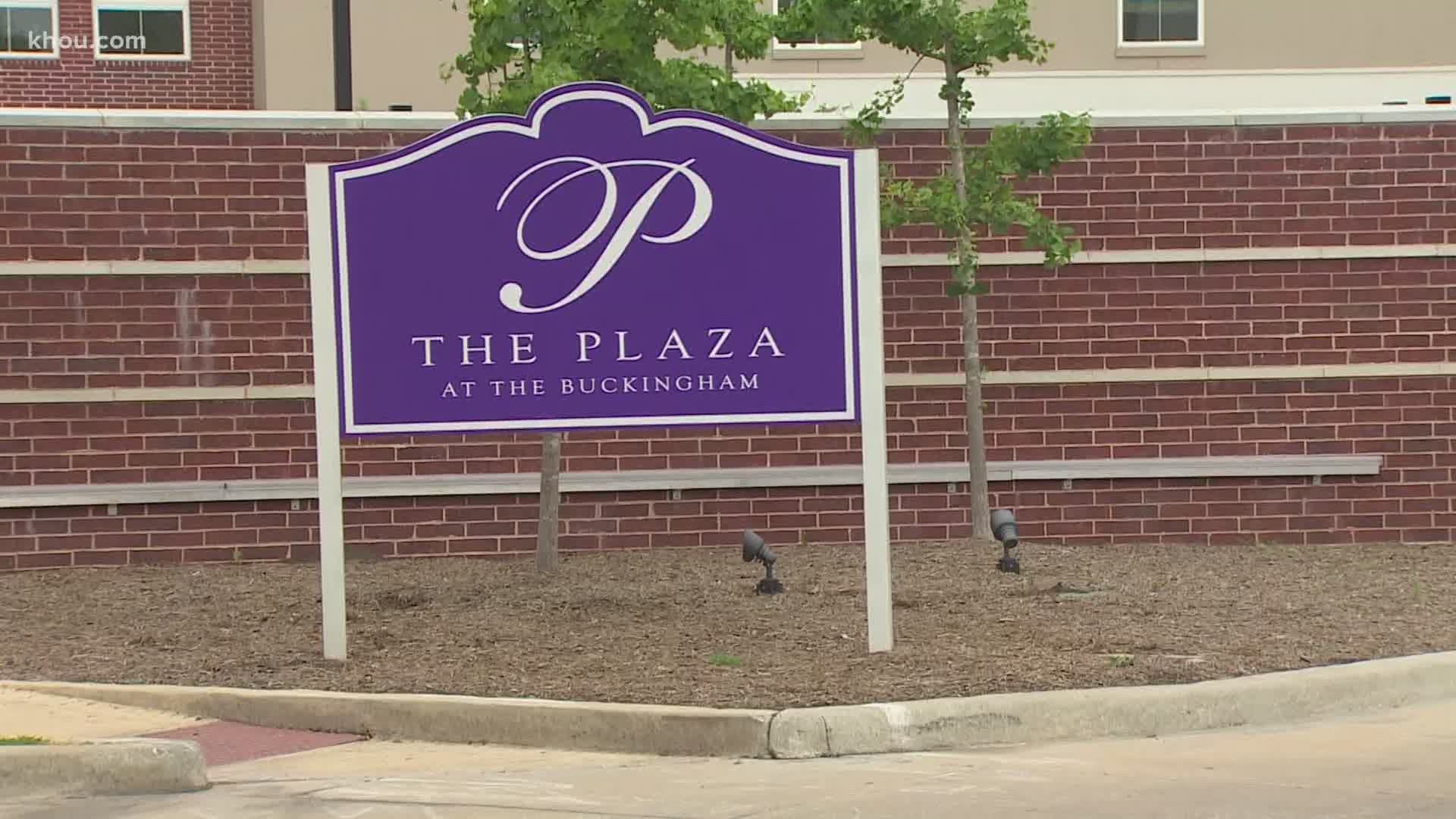HOUSTON — The Buckingham senior living community in west Houston announced on its website a third resident diagnosed with COVID-19 has died.
According to the website, the resident was under hospice care in the COVID-19 wing of the Buckingham’s skilled nursing center.
A recent KHOU 11 Investigates report found as of last week, in Texas, 1 in 4 coronavirus deaths, 26 percent, are linked to nursing homes.
"For our community, it has been so traumatic," said Diana Martinez, President and CEO of Texas Assisted Living Association. "We obviously would want to see more testing done, more screening done."
RELATED: 39 Texas City nursing home residents successfully complete hydroxychloroquine treatment for COVID-19
In the Houston area, there have been a number of major outbreaks at these facilities, involving staff and residents.
The Houston Health Department is trying to help with the testing, but the city has a limited supply of tests.
“We're trying to connect them with labs that we know of in the area that are able to offer high volume testing, so we're making those connections so they can get the testing done," said Dr. David Persse of the Houston Health Department.
In the meantime, nursing homes in Texas are being told to follow the governor's order, by not allowing visitors.
Also under that order, they should try to minimize the movement of staff members to other nursing homes whenever possible.
Coronavirus symptoms
The symptoms of coronavirus can be similar to the flu or a bad cold. Symptoms include a fever, cough and shortness of breath, according to the Centers for Disease Control. Some patients also have nausea, body aches, headaches and stomach issues. Losing your sense of taste and/or smell can also be an early warning sign.
Most healthy people will have mild symptoms. A study of more than 72,000 patients by the Centers for Disease Control in China showed 80 percent of the cases there were mild.
But infections can cause pneumonia, severe acute respiratory syndrome, kidney failure and even death, according to the World Health Organization. Older people with underlying health conditions are most at risk for becoming seriously ill. However, U.S. experts are seeing a significant number of younger people being hospitalized, including some in ICU.
The CDC believes symptoms may appear anywhere from two to 14 days after being exposed.
Human coronaviruses are usually spread through...
- The air by coughing or sneezing
- Close personal contact, such as touching or shaking hands
- Touching an object or surface with the virus on it, then touching your mouth, nose or eyes before washing your hands.
Help stop the spread of coronavirus
- Stay home when you are sick.
- Eat and sleep separately from your family members
- Use different utensils and dishes
- Cover your cough or sneeze with your arm, not your hand.
- If you use a tissue, throw it in the trash.
- Follow social distancing
Lower your risk
- Wash your hands often with soap and water for at least 20 seconds. If soap and water are not available, use an alcohol-based hand sanitizer.
- Avoid touching your eyes, nose, and mouth with unwashed hands.
- Avoid close contact with people who are sick.
- Clean and disinfect frequently touched objects and surfaces.
- If you are 60 or over and have an underlying health condition such as cardiovascular disease, diabetes or respiratory illnesses like asthma or COPD, the World Health Organization advises you to try to avoid crowds or places where you might interact with people who are sick.
Get complete coverage of the coronavirus by texting 'FACTS' to 713-526-1111.

